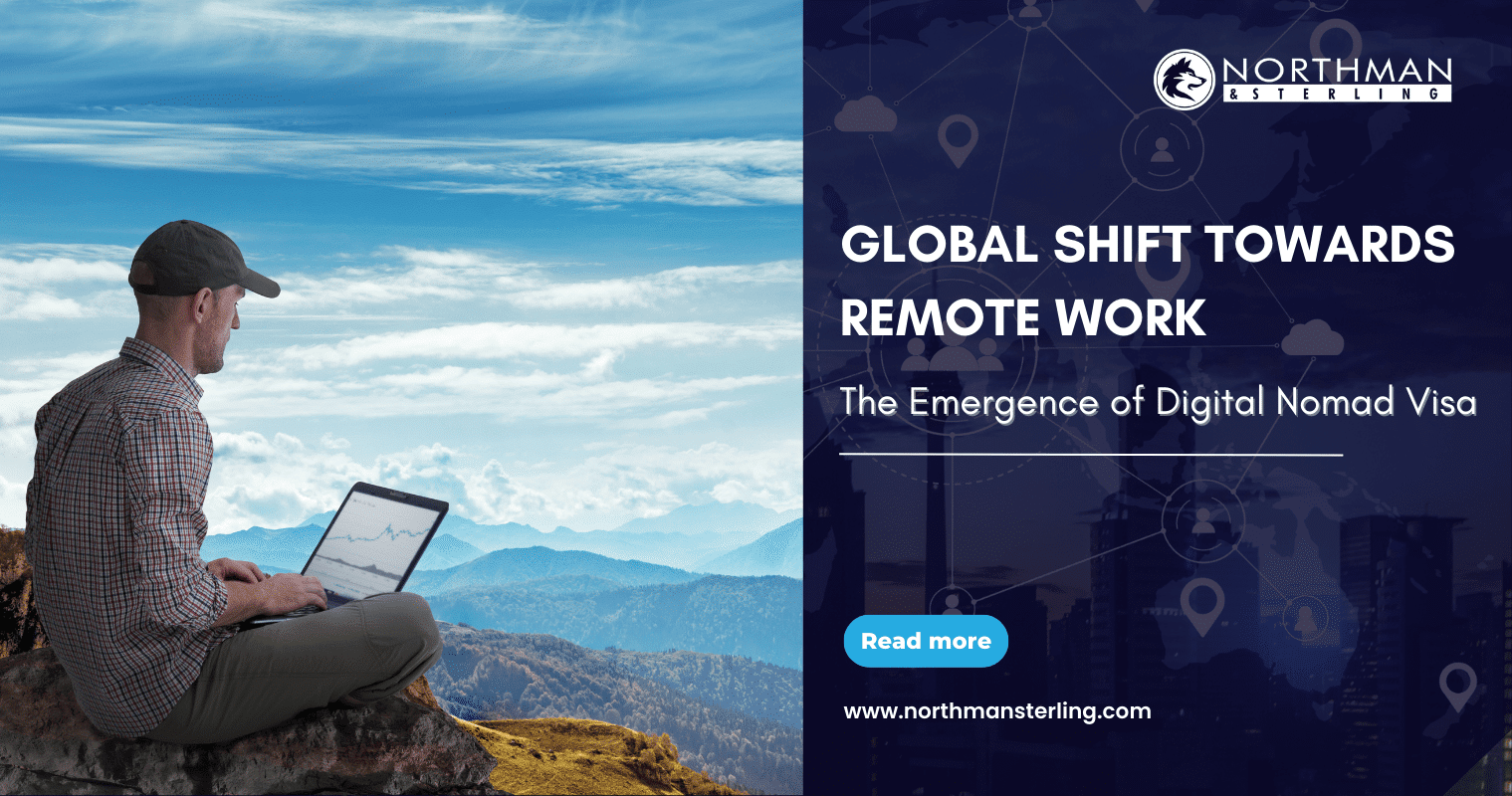
Getting Ready for the Next Phase of Remote Work
The COVID-19 pandemic has demonstrated that the vast majority of employees can effectively work from virtually anywhere, and now they are seeking the freedom to choose their work locations. One significant development in the realm of immigration policies is the emergence of the Digital Nomad Visa. But how can this visa benefit both you and your employees in light of the global shift toward international remote work? Does it enhance your employee value proposition, and can you ensure compliance with it?
What Is a Digital Nomad Visa?
The Digital Nomad Visa is a permit that allows the holder to legally work, usually on a temporary basis, in a foreign country while remaining employed by their home country employer. Although some provisions for such visas existed before, they gained prominence during and after the COVID-19 pandemic as people embraced the concept of remote work.
Digital Nomad Visas are similar to tourist visas in that they are generally quick and straightforward to obtain, often without requiring employer sponsorship. However, unlike tourist visas, they grant permission to work and usually allow for an extended stay, subject to conditions such as not being employed by a local company. But the advantages go beyond this, as we’ll explore below.
Why are more people seeking Digital Nomad Visas now?
With a continuing shortage of skills following the COVID-19 pandemic, employers are increasingly adapting by offering international remote work as a means to attract and retain talent. Additionally, governments are recognizing the economic benefits of attracting digital nomads, resulting in more than 50 countries now offering Digital Nomad Visas.
According to a recent survey, 37 percent of companies allow their employees to work temporarily from a foreign location, provided that they have the right to work, which is a scenario where a Digital Nomad Visa can play a crucial role in ensuring immigration compliance.
Furthermore, 13 percent of the companies surveyed are actively assisting their employees in obtaining the right to work, whether through a Digital Nomad Visa or other means. We anticipate this number will increase as employers incorporate international remote work into their employee offerings.
Key Advantages of Digital Nomad Visas
Digital Nomad Visas offer several benefits when compared to traditional work permits, including:
- Quick issuance with minimal documentation requirements.
- Self-sponsorship, often without the need for employer involvement.
- Extended stay options, particularly beneficial for UK nationals working remotely in Europe.
- Potential income tax reliefs or exemptions.
- Support for nomadic lifestyles and well-being, aligning with modern mobility trends.
- Challenges Associated with Digital Nomad Visas
While Digital Nomad Visas have numerous advantages, some challenges should be considered:
- Minimum salary requirements in some countries can be prohibitive.
- High application fees may not be cost-effective for short-term stays.
- Certain visas are limited to self-employed individuals.
- Regulatory constraints in specific industries may limit remote work possibilities.
- Some visas may not align with short-term remote work durations.
- Limited pathways to permanent residency.
- Tax and social security considerations may vary by country.
Where Can You Work?
The list of countries offering Digital Nomad Visas continues to expand. You can check our latest list and start planning your remote work adventure.
What Is the Processing Time for a Digital Nomad Visa?
The processing time for a digital nomad visa typically spans approximately one month. However, it’s important to note that the processing duration can vary from one country to another.
Duration of a Digital Nomad Visa
A digital nomad visa typically remains valid for a period of one to two years. In certain instances, some countries may offer the possibility of extending the validity of your digital nomad visa up to five years, provided you satisfy the eligibility requirements.
What Kinds of Jobs Are Permissible Under a Digital Nomad Visa?
A digital nomad visa allows you to engage in a wide range of work, as long as the job can be performed remotely via the internet. Nonetheless, the most commonly pursued job categories among digital nomads include:
- Content creators.
- Website developers.
- Social media marketers.
- Digital entrepreneurs.
